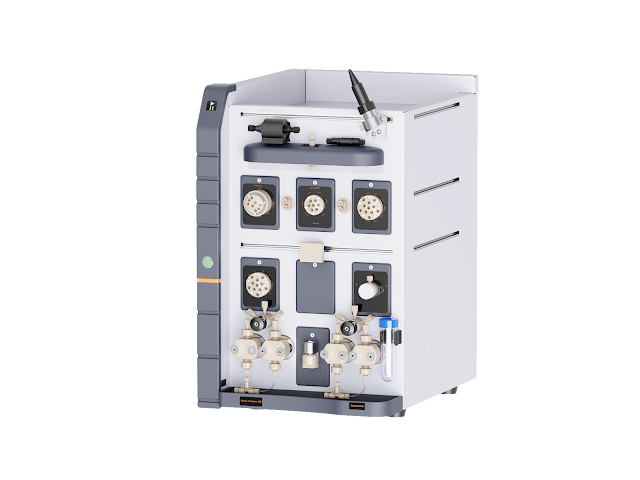The Intersection of Innovation: Oligonucleotide Synthesis and Fast Protein Liquid Chromatography
In the rapidly evolving fields of biotechnology and molecular biology, two processes stand out for their groundbreaking applications: oligonucleotide synthesis and fast protein liquid chromatography (FPLC). These techniques are integral to scientific research, enabling advances in genetics, diagnostics, and therapeutic development. This article explores the significance of oligonucleotide synthesis and FPLC, detailing their processes, applications, and impact on modern science.

The Essence of Oligonucleotide Synthesis
Oligonucleotide synthesis involves the chemical creation of short sequences of nucleotides, the building blocks of DNA and RNA. These synthetic sequences are essential tools in genetic research, diagnostics, and therapeutic applications. The ability to synthesize precise nucleotide sequences allows scientists to explore gene function, develop genetic tests, and create novel treatments for diseases.
The synthesis process typically employs phosphoramidite chemistry, where nucleotides are added one at a time to a growing chain. This step-by-step addition ensures high fidelity and accuracy in the resulting oligonucleotide. Modern synthesizers automate this process, making it possible to produce oligonucleotides efficiently and with high purity.
Applications of Oligonucleotide Synthesis
The applications of oligonucleotide synthesis are vast and transformative. In research, synthetic oligonucleotides are used as primers in polymerase chain reaction (PCR) to amplify specific DNA sequences. This technique is fundamental in genetic research, allowing for the detailed study of genes and genetic variations.
In diagnostics, oligonucleotide probes are employed in techniques like fluorescence in situ hybridization (FISH) and microarrays to detect genetic mutations and pathogens. These applications are crucial in identifying genetic disorders, infectious diseases, and even cancer.
Therapeutically, synthetic oligonucleotides are used in antisense therapy and RNA interference (RNAi) to modulate gene expression. These therapies hold promise for treating a range of diseases, including genetic disorders, viral infections, and cancers.
The Fundamentals of Fast Protein Liquid Chromatography
Fast Protein Liquid Chromatography (FPLC) is a powerful technique for the separation and purification of proteins. FPLC leverages liquid chromatography to separate proteins based on their size, charge, hydrophobicity, and affinity for specific ligands. This technique is essential in both research and industrial applications where pure proteins are required.
An FPLC system consists of high-performance pumps, detectors, and columns. The sample is injected into a column filled with a stationary phase. As the mobile phase (usually a buffer) flows through, proteins interact with the stationary phase and elute at different times. This separation allows for the isolation and analysis of individual proteins.
Applications of Fast Protein Liquid Chromatography
The Fast Protein Liquid Chromatography is widely used in various scientific and industrial fields. In the pharmaceutical industry, FPLC is critical for the production of biologics, including monoclonal antibodies and insulin. These biologics require high purity and precision, which FPLC can deliver.
In academic research, FPLC is used to purify proteins for structural and functional studies. Understanding protein structure and function is essential for elucidating biological processes and developing new drugs. Environmental science also benefits from FPLC in studying proteins involved in biodegradation and pollutant processing.
Integrating Oligonucleotide Synthesis and FPLC
The integration of oligonucleotide synthesis and fast protein liquid chromatography exemplifies the synergy in modern biotechnology. For instance, synthesized oligonucleotides can be used to clone and express proteins, which are then purified using FPLC. This combination accelerates the pace of research and development, enabling more rapid discovery and application of new biotechnologies.

Advancements and Future Directions
Advancements in oligonucleotide synthesis and fast protein liquid chromatography continue to push the boundaries of what is possible in biotechnology. Improved synthesis techniques are enabling longer and more complex oligonucleotides with higher accuracy. Similarly, advancements in FPLC technology, such as higher resolution columns and more sensitive detectors, are enhancing protein purification efficiency and puri.
The future of these technologies looks promising, with potential applications expanding into new areas such as personalized medicine, where tailored oligonucleotides and purified proteins can be used to develop individualized treatments.
Conclusion
The techniques of oligonucleotide synthesis and fast protein liquid chromatography are pivotal to the advancement of biotechnology and molecular biology. They enable the detailed study and manipulation of genetic and protein materials, driving innovations in research, diagnostics, and therapeutics. For those seeking high-quality equipment and expert guidance in these fields, Inscinstech.com.cn offers a comprehensive range of products and resources. By visiting Inscinstech.com.cn, researchers can access the tools necessary to advance their scientific endeavors and achieve groundbreaking discoveries.
.jpg)

Comments
Post a Comment